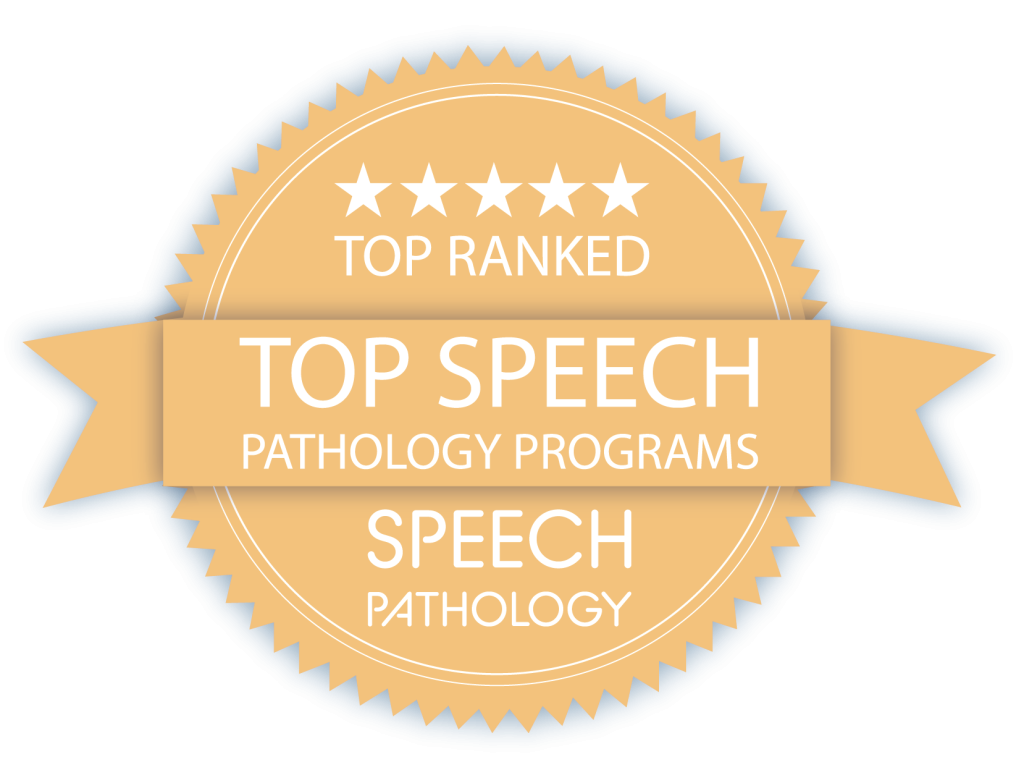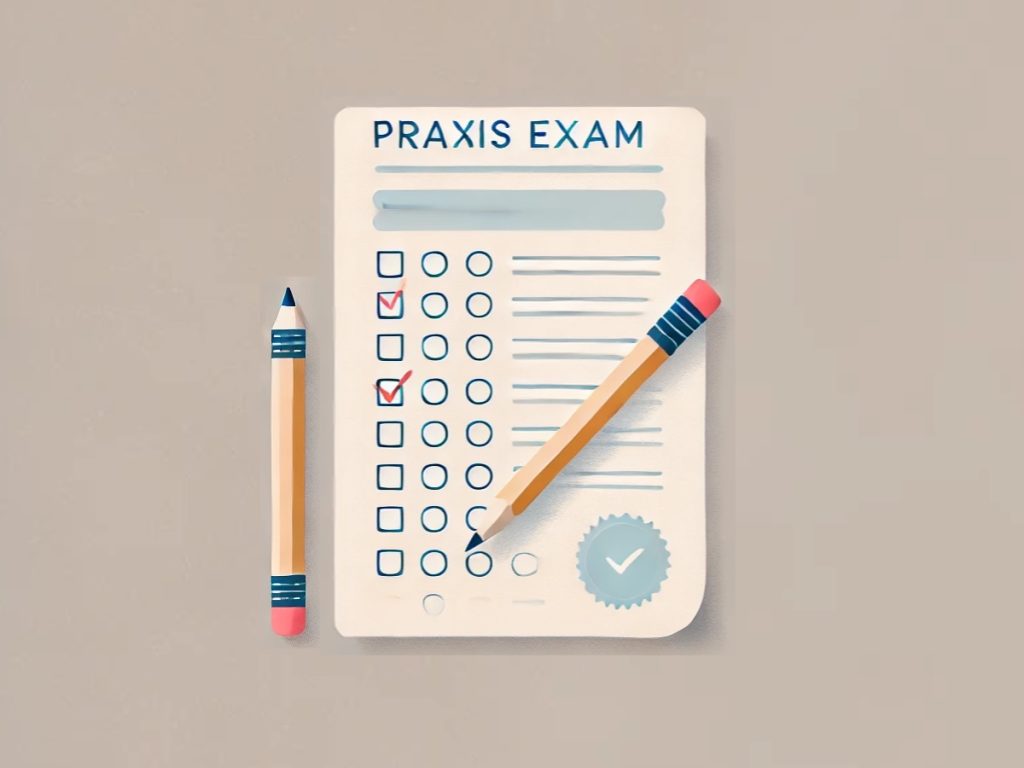Last Updated
April 14, 2025Written By
Elizabeth Monroe, M.S., CCC‑SLPMichigan has several good Speech-Language Pathology (SLP) degree programs at the undergraduate and graduate levels, so it is a good state to be an aspiring SLP. Many public universities, including Eastern Michigan, Western Michigan, Central Michigan and Michigan State, provide bachelor’s of Communication Sciences and Disorders. These programs include phonetics, language development, and audiology, among other speech-language pathology areas of learning. For graduate students, Grand Valley State and Wayne State provide accredited master’s programs that offer clinical training to help you prepare for the required fellowship and the Praxis exam. It also has a speedy 16-month format; Andrews University and Calvin University provide private options as well.
Michigan is notable due to its strong job market, especially in schools and major health systems including Beaumont or Spectrum Health; the average salary is in the low-to-mid $80,000 range. The demand for SLPs is increasing rapidly because of an increasing population of older people and more screening for communication disorders in children. Choosing Michigan, you can take advantage of hospitals, clinics, and educational agencies that are supporting you and your way to a successful and rewarding career as a speech-language pathologist.

Explore the top-rated speech-language pathology programs in Michigan with our curated rankings. Whether you’re just starting or ready for the next step, speechpathology.org showcases the best SLP schools in Michigan for aspiring professionals. Discover how programs are selected at speechpathology.org/rankings-methology.

Grand Rapids, MI - Private 4-year - calvin.edu
Campus Based - Visit Website
Calvin University's Bachelor of Arts in Speech Pathology and Audiology provides a foundation for graduate study in communication sciences. Located in Grand Rapids, Michigan, this on-campus program equips students with the knowledge and skills to address communication disorders and improve quality of life. Further details on admissions requirements and costs are available on the university website.
Online Learning - Visit Website
Calvin University's online Master of Arts in Speech-Language Pathology (MA-SLP) equips students for clinical practice. This 72-credit hour program boasts a 100% PRAXIS exam pass rate and emphasizes a Christian framework. Students complete clinical hours and benefit from expert faculty. The program typically takes 2-3 years to complete at $940 per credit. No GRE/GMAT is required, and up to 6 transfer credits are accepted.
Campus Based - Visit Website
Calvin University's on-campus Master of Arts in Speech-Language Pathology (MA-SLP) prepares students for careers addressing communication challenges. The faith-integrated curriculum combines virtual and in-person clinical training. This flexible program spans 2-3 years, costs $940 per credit, and boasts a 100% PRAXIS pass rate. No GRE/GMAT is required. Graduates are well-prepared for a field with a growing demand.
Detroit, MI - Public 4-Year - wayne.edu
Campus Based - Visit Website
Wayne State University's Bachelor of Arts in Communication Sciences and Disorders provides a pre-professional foundation for aspiring speech-language pathologists. This 120-credit program integrates mathematics, psychology, and physical sciences with coursework in audiology, phonetics, and other communication sciences. Students gain hands-on research experience in state-of-the-art labs, preparing them for graduate study and ASHA clinical certification. The field projects a 21% job growth by 2031. Requires ACT/SAT.
Campus Based - Visit Website
Wayne State University's Master of Arts in Speech-Language Pathology (MA-SLP) program is a comprehensive program designed to prepare students for careers as speech-language pathologists. This rigorous curriculum provides students with the theoretical foundations and practical skills necessary to address various communication disorders across all age groups. The program emphasizes clinical training, research opportunities, and a focus on inclusivity. Graduates are prepared to meet professional certification requirements and pursue diverse career paths in the field. Requires GRE.
Campus Based - Visit Website
Wayne State University's Master of Arts in Speech-Language Pathology (MA-SLP) program blends theoretical knowledge with practical clinical experience to prepare graduates for careers as certified speech-language pathologists. The program covers language development, disorders, and neuroscience, offering students hands-on clinical practice. Reduced tuition is available for out-of-state students. Graduates are prepared for state licensure and diverse career settings. Contact [email protected] for admissions information. Requires GRE.
Concentration: Speech-Language Pathology - Campus Based - Visit Website
Wayne State University's Ph.D. in Communication Sciences and Disorders, specializing in Speech-Language Pathology, prepares graduates for research and academic roles. Located near Detroit's major health centers, the program emphasizes original research in areas like child language, speech perception, and neuroimaging. Admission requires a master's degree, GRE scores, a personal statement, and letters of recommendation. This program focuses on individualized research and coursework and does not lead to clinical licensure. Requires GRE.
Berrien Springs, MI - Private 4-year - andrews.edu
Campus Based - Visit Website
Andrews University's Bachelor of Science in Speech-Language Pathology and Audiology prepares students for careers in communication sciences. This campus-based program combines theoretical knowledge with practical experience, focusing on speech therapy and audiology. Financial aid options are available. Applicants should have a high school diploma or equivalent with a strong background in science and communication courses. Requires ACT/SAT
Campus Based - Visit Website
Andrews University's Master of Speech-Language Pathology (MSLP) program blends academic coursework with clinical experience. Students develop skills in assessing and treating speech, language, and swallowing disorders. The program fosters a supportive learning environment and encourages research. Applicants need a bachelor's degree in a related field, GRE scores, and letters of recommendation. Requires GRE
Campus Based - Visit Website
The Transitional 3-Year Master of Speech-Language Pathology (MSLP) track at Andrews University offers a blended approach to academic and clinical education. Designed for students at various life stages, this flexible program prepares graduates for professional certification and licensure in speech-language pathology. Further details on admissions requirements and program costs can be found on the university's website. Requires GRE
East Lansing, MI - Public 4-Year - msu.edu
Campus Based - Visit Website
Michigan State University's Ph.D. in Communicative Sciences and Disorders is designed for aspiring leaders in academia, industry, and clinical settings. The program emphasizes personalized research training, covering essential areas such as research ethics, statistics, and cognitive science. Students benefit from practical experiences in grant writing, publishing, and teaching, supported by funding options like assistantships and tuition waivers. Aimed at advancing knowledge in speech, language, and hearing sciences, the program offers lab rotations and a focus on publishing skills, preparing graduates for diverse career paths. Highlights include competitive stipend rates and exposure to multiple labs, ensuring a comprehensive research and professional development experience.
Ypsilanti, MI - Public 4-Year - emich.edu
Campus Based - Visit Website
Eastern Michigan University's Master of Arts in Speech-Language Pathology (MA SLP) program equips graduates for diverse clinical practice. The program blends a comprehensive curriculum with hands-on clinical practicum and off-campus internships. EMU welcomes students with various academic backgrounds, offering a flexible pathway for those new to the field. Graduates are prepared for clinical work with children and adults, research, and serving diverse populations.
Concentration: Pediatric Focus - Campus Based - Visit Website
Eastern Michigan University's Master of Arts in Speech-Language Pathology, with a Pediatric Focus, prepares students for diverse clinical settings. This ASHA-accredited program emphasizes hands-on learning through its on-site Speech and Hearing Clinic and external internships. The program typically takes two years for students with an SLP background and three for those entering from other fields. No GRE scores are required for admission.
Concentration: Adult Focus - Campus Based - Visit Website
Eastern Michigan University's Master of Arts in Speech-Language Pathology, with an Adult Focus, provides comprehensive training for aspiring clinicians. This CAA-accredited program emphasizes practical experience through its on-site Speech and Hearing Clinic and off-campus internships. The program, taking 2-3 years, integrates academic and clinical training. No GRE scores are required for admission.
Kalamazoo, MI - Public 4-Year - wmich.edu
Campus Based - Visit Website
Western Michigan University offers a Master of Arts in Speech-Language Pathology, a two-year residential program designed for students aiming to excel in the field of communication sciences. With a focus on advanced clinical skills and leadership, the program provides interprofessional clinical training and research opportunities. It prepares students for ASHA certification through a culturally responsive curriculum and evidence-based practices. Highlights include diverse clinical experiences, state-of-the-art facilities, and graduate assistantships. The program emphasizes holistic admissions and requires a bachelor's degree for entry. Application deadline is January 15.
Mount Pleasant, MI - Public 4-Year - cmich.edu
Campus Based - Visit Website
Central Michigan University offers a Master of Arts in Speech-Language Pathology, designed to prepare students for the challenges of diagnosing and treating communication disorders. This program stands out for its blend of academic rigor and practical clinical experiences, ensuring graduates are well-equipped for certification and professional practice. With access to state-of-the-art research facilities and a variety of clinical settings, students gain hands-on experience under expert supervision. The program is accredited by the ASHA Council on Academic Accreditation, emphasizing a commitment to excellence in speech-language pathology education. Highlights include diverse clinical opportunities and preparation for CCC-SLP certification. Requires GRE.
Marquette, MI - Public 4-Year - nmu.edu
Campus Based - Visit Website
At Northern Michigan University, the Speech, Language and Hearing Sciences program offers a dynamic blend of undergraduate and graduate studies focused on communication sciences. The curriculum is designed to prepare students for careers in speech-language pathology and audiology, featuring courses in biology, statistics, physics, and linguistics. Graduate applicants need a GPA above 3.0, highlighting the program's academic rigor. Unique aspects include videotaped and live observation experiences, alongside clinical practicum opportunities at the NMU clinic. This program is ideal for those seeking a comprehensive education in communication disorders, with a clear pathway to advanced training in speech-language pathology. Requires GRE.
Campus Based - Visit Website
Northern Michigan University's Master of Science in Speech-Language Pathology is a rigorous, two-year graduate program that blends academic coursework with extensive clinical training. Designed for aspiring speech-language pathologists, the program covers human communication processes and disorders, preparing graduates for diverse professional settings. Admission requires an undergraduate degree with specific prerequisites, ensuring a solid foundation for advanced study. The program stands out for its emphasis on hands-on clinical experience, supervised by certified faculty, and its commitment to preparing students for professional certification. With a curriculum that includes clinical practicum courses, students are well-equipped for careers in schools, hospitals, and private practices. Requires GRE.
If you are choosing between an SLP bachelor’s degree and a master’s degree in speech-language pathology in Michigan, you are in luck. The basics you require are provided by the bachelor of Science in Communication Sciences and Disorders (CSD) offered by colleges such as Eastern Michigan and Central Michigan. Expect classes in speech anatomy, phonetics, and language development. Admissions usually just need a high school diploma or GED, your GPA, and test scores like the ACT or SAT (though some schools may be test-optional now). With that degree, you can get work as a speech-language pathology assistant or in other support roles.
However, to become a fully licensed SLP in Michigan, you will need a master’s. Wayne State, Western Michigan and Grand Valley State desire you to have CSD prerequisites or an undergrad background in the field along with a good GPA and letters of recommendation. Some also require the GRE. Yes, a master’s can be costly. You will find that in-state tuition is in the $20,000 to $40,000 range for the entire master’s degree. But most people find the payoff is worth the cost as Speech Pathologists in Michigan earn well in the low-to-mid $80,000s, with plenty of job openings in schools and hospitals.
With just a bachelor’s, you won’t be able to work in that same pay range, but you can work in support roles or progress to a master’s at a later time. In total, Michigan’s strong healthcare networks, increasing schools, and community support make this state a great choice for both bachelor’s and master’s SLP programs.
If you are thinking of taking your SLP career as far as it can go, you might have your eye on a doctoral path. In Michigan, Wayne State and Michigan State University offer PhD programs in Communication Sciences and Disorders, which are research heavy and get ready for academic careers. Typical admission requirements include a master’s degree (sometimes in speech language pathology or a related field), letters of recommendation and a good academic record. These programs can lead to jobs such as university professors, research scientists, or managers in healthcare. Tuition for a PhD is different from that of a master’s program because many students receive stipends or assistantships that pay for part or all of their tuition.
Currently, there is no in-state option for an advanced clinical doctorate, aka SLPD. However, most people here opt for online speech pathology programs or out-of-state SLPD programs if they want to enhance their clinical and leadership abilities. An SLPD usually demands a master’s in speech-language pathology, a current SLP license, and in some cases, the CCC-SLP credential. You can move up to the top levels of administration, supervision, or therapy with a clinical doctorate. The salary will depend on the industry but SLP doctorate degree holders in this state can earn more than the master’s level salary, particularly if they get faculty positions or management positions in hospitals or rehabilitation centers.
In Michigan, becoming a licensed speech-language pathologist is rather simple. First, you have to obtain a graduate degree in speech pathology from an institution that has been accredited – this is usually a master’s degree. Once you have completed your studies, you will have to do a clinical fellowship of at least 1,260 hours supervised (this can take about nine months). That fellowship allows you to gain experience while you are still under the regulation of another SLP. However, one must pass the Praxis exam in speech-language pathology, which is a national exam to determine the competency of individuals who want to practice the profession.
You can only apply for the full Michigan SLP license from the Michigan Board of Speech-Language Pathology after that.
When applying, you will require copies of your official transcripts, a document that proves the number of supervised hours you have rendered, and a Praxis score of at least 160. A background check, human trafficking awareness training, and implicit bias training are also required to practice.
After being fully licensed, your Michigan SLP license will be valid for two years and be renewed every two years, and the licensee must have at least 20 hours of CE. At least one of those CE hours must address pain management strategies. However, ASHA’s Certificate of Clinical Competence (CCC-SLP) may be the preferred credential. It can also be used to show professional standards when you change states or wish to advance your career to higher speech pathologist positions in hospitals, schools or private clinics.
If you are looking for the quickest way to become a speech-language pathologist in Michigan, there are a few ways that will help you beat the standard timelines. The usual time for a bachelor’s degree in Communication Sciences and Disorders is four years, but Andrews University has a combined bachelor’s and master’s track that can bring the total time to about five years instead of six. That’s a pretty big deal if you want to start working sooner and pay a bit less in tuition.
For those who already hold a bachelor’s degree in speech pathology, a standard master’s degree is usually two years. Among these, Grand Valley State has a 16-month master’s program for students who have fulfilled all the entry requirements. This accelerated SLP degree track, which moves quickly through coursework and clinical training, has graduates able to proceed directly to their clinical fellowships with minimal delay. Doctoral programs, like a PhD, can take at least four years, but if you factor in research or teaching duties, it could be longer still.
There isn’t currently a combined SLP master’s/doctoral path that cuts more time from the program in Michigan, but you can look at out-of-state or online SLPD programs if you are interested in advancing clinically without having to be in school for more years than necessary. Ultimately, it will depend on your current situation and how much intensity of study you are willing to undertake to find the fastest way for you.
| School Name | Highlights | Retention & Grad Rates |
|---|---|---|
| Calvin University |
|
|
| Eastern Michigan University |
|
|
| Michigan State University |
|
|
If you’re looking to keep costs down while pursuing speech-language pathology in Michigan, you’re definitely not alone. Attending a public university can sometimes save you from accumulating too much student loan debt. If you are planning to pursue a bachelor’s degree in Communication Sciences and Disorders, the cost of attendance at Central Michigan or Eastern Michigan is $12,000 to $15,000 per year for in-state students. If you are thinking that is pricey, just remember it is cheaper than the private schools.
For master’s programs in speech pathology, you may be able to do it for between $20,000 and $40,000 all told—again that’s assuming you can get in-state rates. EMU, WSU, and WMU are typically within that price range, but the final cost will vary based on credit hours and university fees. Eastern Michigan, Wayne State, and Western Michigan generally fall into that price range, though the exact amount depends on credit hours and university fees. Private colleges like Calvin or Andrews may run higher, sometimes above $900 per credit, though they do offer scholarships or other financial support.
If a PhD is on your radar, you might actually spend less than you think if you land a teaching assistantship or research stipend. That kind of funding can offset tuition in a big way. As for an SLPD, Michigan doesn’t currently offer one in-state, so you’d likely have to look to online SLP programs or elsewhere. In the end, balancing cost with your career goals is the name of the game here.
| School Name | Highlights | Annual Estimated Tuition & Fees |
|---|---|---|
| Calvin University |
|
|
| Wayne State University |
|
|
| Michigan State University |
|
|

If you are pursuing the position of a speech-language pathologist, then you may have heard of the Praxis exam from your professors, classmates, or even

If you are interested in pursuing a career in SLP and have been researching licensing requirements or are simply interested in learning more about SLP

If you have ever been researching speech-language pathology careers and come across the words ‘speech pathologist’ and ‘speech therapist’, you might wonder if they are
Our mission is to empower future speech-language pathologists by providing the most accurate, up-to-date, and accessible information available. Our team is dedicated to guiding individuals through the journey of becoming an SLP—whether you’re just exploring the field or actively pursuing a degree. We specialize in delivering reliable insights on state-by-state availability, affordability, and the fastest paths to certification and licensure. Our goal is to help you make informed decisions based on real data, trusted resources, and the evolving needs of the profession. With a strong commitment to educational clarity and career transparency, we’re here to support and simplify your path toward a rewarding future in speech-language pathology.
PLEASE NOTE: The contents of this website is for informational purposes only. All trademarks are the property of their respective trademark holders.